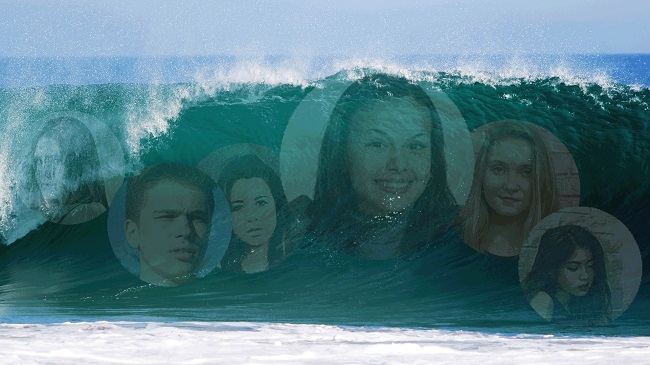Positive Health Online
Your Country

You are what your Emotions Are
by Rajgopal Nidamboor(more info)
listed in psychospiritual, originally published in issue 241 - October 2017
The explanation of unconscious facial expressions is representative of questioning idioms. That our facial expressions reflect our emotions was a stratagem first articulated by Charles Darwin for cataloguing human emotions. It was somewhere, down the line, that independent researchers began to push the idea that our facial contours emote our sensory responses through our facial muscles to the brain. This, they surmised, was the foundation of all our emotional states.
It was much later that research studies tapped and found that when a certain activity in the muscles of the eyes and mouth gets transmitted to the cortex that it would, by design, induce delight, for instance. New research in neurology contends that certain instinctive neural encodings located in the subcortical centres are receptive to precise thrusts that generate facial phrases - by way of our primary emotions, viz., attention, happiness, surprise, fear, embarrassment, repugnance and annoyance.

This is, of course, not as simplistic as it sounds, or appears to be, primarily because each of our emotive states corresponds to a fusion of states and not just emotional units of a specific condition. We all smile in the presence of a habitual reaction to a host’s welcome. We, likewise, react to our ‘favoured’ sense for tanginess through biologically sponsored responses. All of this, and more, is the consequence of foreseeing a much looked-out-for potential response expressed by varied brain outlines. Put simply, they all reflect several situations, not just a solitary state. This behavioural phizog of our emotions is part of artistic science and creative knowledge, if not validated, or measured, parametric equations.
You are what your emotions are and vice versa. Emotions make us what we are, or profess to be. They define their etymology - because our emotions are akin to rhyme in motion, the eternal beating of the waves of the ocean, the insidious blooming of a flower, and the rhythmic tunes of attuned melody that speak a parable of their own subsistence, visualized in terms of classical imagery. Take for instance, ‘aversion’ as the expression of one’s emotion - the facial phrase is depicted by a consistent change in facial expression, even though not all emotional states are accompanied, as a rule, by uniformly explicit alterations in facial muscles. On the other hand, you’d think of emotional states that follow a clear, yet hesitant, intent to ‘trick’ another person and/or of anxiety felt during a job interview - they are often bereft of noticeable shifts in one’s facial muscles. This may, of course, not hold good when you savour your favourite chocolate - you will exemplify your happiness through your face. Well, when you, on purpose, don’t share a bite with someone sitting next to you, for whatever reason, you derive vicarious pleasure from your prank thereto.
What does this suggest? That although our face is neither the source of all emotions nor a reliable precursor of an emotional state, it can at a certain juncture divulge a ‘feeling state’, or ‘moody favouritism’. There was this case of a baby who would present with recurrent facial contortions at the paediatrician’s office. This was unusual to infants of his age. Within a few years, something dramatic happened, whenever he would visit the clinic. As my paediatrician friend would put it, the kid grimaced during examination, or a simple procedure using the tongue depressor. He was finicky for no reason - although all his facial expressions represented familial, or parental, disharmony. His face literarily mirrored his emotional state. If this isn’t a natural reflection of one’s face and emotions, designed by the divine psychologist that first paid attention to such details, what is?
Acknowledgement Citation
Reprinted from www.mydigitalfc.com/2017/you-are-what-your-emotions-are
Comments:
-
No Article Comments available